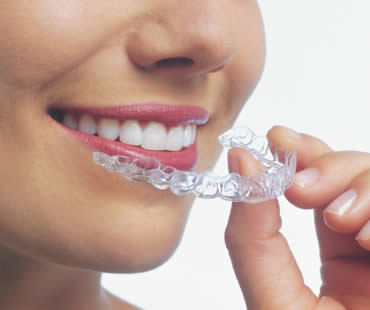
Across drugstore and grocery aisles, toothpaste options line the shelves. Brushing plays an important part in maintaining dental hygiene. With all the choices, you may feel like it’s a tough to make a decision. Knowing the difference between whitening toothpaste and natural toothpaste can help you decide the best option for your smile.
Cavity-fighting toothpaste
When used correctly, all toothpastes ward off cavities by removing plaque from teeth. Choosing toothpaste with fluoride will protect enamel from erosion and strengthen your teeth. Children under six shouldn’t use fluoride toothpaste because they can ingest too much and end up with white spots on their teeth from overexposure to the fluoride.
Whitening toothpaste
Although these options will remove staining, whitening toothpastes don’t work as well as professional teeth whitening. For temporary results and a brighter appearance, many people swear incorporate whitening toothpaste into their hygiene routines.
Antibacterial toothpaste
Some of the newer products have an antibacterial agent called triclosan that may help protect gums from the bacterial infections that cause gum disease. Since these toothpastes haven’t been on the market that long, the jury is still out on their effectiveness.
Natural toothpaste
Found in most health food stores, all-natural toothpastes are typically fluoride-free. Often, natural toothpastes contain ingredients such as peppermint oil, myrrh, or aloe to clean teeth and freshen breath.
Toothpaste for sensitive teeth
If eating ice cream or drinking coffee causes tooth pain, toothpaste designed to minimize sensitivity might be good for you. These compounds work by desensitizing teeth and blocking the tubules that reach the nerves in your teeth.
Contact one of our dental offices Ryde, Campsie, Kogarah, and Haymarket

There are few things more irritating than having a painful, swollen sore in your mouth. It bothers you while eating, talking, and even just sitting around. There are a number of types of mouth sores with different causes. Some are infections from bacteria, viruses, or fungus. Or they can be a result of an ill-fitting denture, broken tooth or filling, or loose orthodontic wire. Mouth sores can also be a symptom of a medical condition. Here are some details about common mouth sores.
Canker sore
These small sores occur inside your mouth, and are white or gray with a red outline. They aren’t contagious, but are recurring and can happen one-at-a-time or several at once. Experts believe that lowered immune systems, bacteria, or viruses are risk factors. Canker sores often heal by themselves in about a week, and topical anesthetics or antibacterial mouthwashes may provide relief.
Cold sore
Also called fever blisters, these sores occur outside of your mouth around your lips, nose, or chin. These blisters filled with fluid are caused by the herpes simplex virus type 1, and are extremely contagious. Once you have been infected with the herpes virus, it remains in your body and occasionally flares up. Cold sores usually heal in about a week on their own. Topical anesthetics may help, and your dentist might prescribe antiviral medications to reduce outbreaks.
Candidiasis
Also called oral thrush, candidiasis is a result of the yeast Candida albicans reproducing in large quantities. It usually happens to those with weakened immune systems, and is common with people wearing dentures or with dry mouth syndrome. Candidiasis is also linked to taking antibiotics. Controlling candidiasis is done by preventing or controlling the cause of the outbreak. Ask your dentist for advice.
Leukoplakia
Common with tobacco users, leukoplakia are thick white patches on the inside of your cheeks, gums, or tongue. In addition to tobacco use, they can also be caused by ill-fitting dentures or continual chewing on the inside of your cheek. Leukoplakia is linked with oral cancer, so your dentist may advise a biopsy if the patch looks suspicious.
Contact our dental office in Ryde, Campsie, Kogarah, and Haymarket to schedule a dental checkup.

As we age, our teeth and gums change. Proper care of your teeth as well as eating a good diet can keep your smile beautiful and strong. Certain vitamins and minerals also help promote optimal oral health.
As we age, our teeth and gums change. Proper care of your teeth as well as eating a good diet can keep your smile beautiful and strong. Certain vitamins and minerals also help promote optimal oral health.
Vitamin A
Besides aiding with vision, Vitamin A also helps with the development of healthy teeth and gums. As well, Vitamin A contains beta-carotene, which has antioxidant properties. These antioxidants assist in getting rid of free radicals, chemicals that speed up decay in the body.
Vitamin C
Also called ascorbic acid, Vitamin C assists with the absorption of iron, maintains healthy connective tissues, and promotes strong teeth and gum tissue. Because Vitamin C is water-soluble, it is washed out of the body once it has what it needs, people should take in Vitamin C every day.
Vitamin D
Created after exposure to sunlight, Vitamin D encourages calcium absorption as well as helping keep the right levels of calcium and phosphorous in the blood stream. Children need to get enough Vitamin D so that they will develop healthy teeth and bones, so it is often added to milk.
Calcium
No matter your age, every person needs to take in enough calcium because this mineral is crucial in the development and maintenance of teeth and bones. In fact, your jaw bone forms the foundation that houses your teeth.
Getting What You Need
Eating a balanced diet will ensure that your body has the vitamins and minerals needed to keep your smile vibrant for a lifetime. Dairy products like yogurt and cheese as well as vegetables such as broccoli and peas are high in calcium. Have lots of egg yolks, fatty fish, and fortified dairy products when you need Vitamin D. Citrus fruits, melons, berries, and tomatoes offer plenty of Vitamin C, and you can find Vitamin A in dark green or yellow fruits and vegetables, eggs, or low-fat dairy products.

Chances are that you want to have a smile full of sparkly, white, straight teeth. You must not forget about the goal of having a healthy smile too. If you don’t pay proper attention to your mouth, there are a number of diseases and problems that can arise. Poor hygiene causes many problems, from minor to severe, so it’s smarter to make sure your teeth stay in good condition. Follow these suggestions for a healthy smile.
Focus on daily care
Your mouth requires care every single day. You simply can’t perform hygiene tasks once every few days or just when it’s convenient, and expect to have a healthy, attractive smile. Follow your dentist’s instructions on properly brushing your teeth at least twice daily, and flossing every day too. In fact, flossing is just as important to your oral health as brushing! By performing both of these daily tasks, you’ll be able to remove debris and germs and improve your smile.
Choose your products wisely
Select toothpaste that meets your goals. It should always contain fluoride, but you can also choose brands with objectives like tartar protection, improving bad breath, and teeth whitening. You may also want to choose a mouthwash that you can use to quickly clean your mouth, or supplement your other oral care products.
Don’t ignore your dentist
Even if you’re properly caring for your mouth at home, it’s important to continue seeing your dentist regularly. Experts suggest having dental checkups every six months, so your dentist can look for problems like gum disease, cavities, and infections. It’s smart to get any issues treated right away, before things worsen and lead to more costly, painful procedures later.
Schedule your appointment today at our Ryde, Campsie, Kogarah, and Haymarket dental offices.

Does your child need braces, but isn’t sure about being a “metal mouth” for two or more years? Did your teen come to you and beg for some other option to traditional braces? Perhaps you’ve heard about Invisalign aligners but are wondering if they’ll work for your child. Invisalign is absolutely appropriate for your teen if all of his or her baby teeth have fallen out and adult teeth have erupted.
Invisalign provides the same results as traditional metal braces, but without the metal brackets. Concerns over eating with braces are removed with the Invisalign trays, as they come out for meals, leaving your teen free to eat any food he or she desires.
Invisalign utilizes clear plastic trays that allow the process of straightening your teen’s teeth to be less obvious and less obtrusive. Beginning with x-rays and molds, your orthodontist will make a series of trays, called aligners. These trays are worn most of the day, taken out only to eat or to be cleaned. The process of straightening happens gradually and comfortably.
Invisalign for teens in Ryde, Campsie, Kogarah, and Haymarket – Schedule a consult today.
It is essential during this time that the trays are worn as recommended by the orthodontist. Wearing them less than the recommended amount of time will result in slower correction, and has the potential to lengthen treatment. Have your teen continue with any established good oral hygiene habits. Brushing and flossing must continue on a regular basis, brushing twice a day at minimum and flossing before bedtime.
Being a teenager is full of difficulties, and it is during this time that teens are at their most self-conscious. Adding metal braces to this transition can make everything worse for your child, leaving him or her self-conscious about eating with friends or smiling, talking or laughing in public. Your teen’s gapped, misaligned or crowded teeth can be improved significantly with Invisalign trays. Talk to your orthodontist today to see how Invisalign can make a difference for your child.
Contact one of our dental offices Ryde, Campsie, Kogarah, and Haymarket

Having a smile that embarrasses you is not a good way to go through life. With so many options available for improving the way your teeth look, there’s no reason to continue trying to hide them. One of the best options available today is Invisalign, or invisible braces. This innovative technology may be able to help you transform your smile without the hassles of traditional orthodontics.
Invisalign consists of a series of clear plastic aligning trays that gently shift your teeth into better positions. Practically invisible when worn, these aligners are removable for eating and cleaning. No dealing with a mouthful of unsightly metal, avoiding restricted foods, or worrying about food becoming stuck in your braces.
What types of problems can Invisalign correct? Some common flaws include gaps between teeth, crowded teeth, overlapping teeth, mild malocclusions, or twisted teeth. Issues like these not only impact the appearance of your smile, but can also cause oral health complications such as difficulty in cleaning or improper wearing on your teeth.
We have 4 locations. Dentists offices in Ryde, Campsie, Kogarah, and Haymarket
Who should consider Invisalign? Anyone with teeth problems like those above is likely a good candidate, especially those who want to make the best impressions on others in their professional and personal lives. If you want to repair your smile without wearing traditional braces and have the choice of removing your orthodontics for special occasions, then you’ll find Invisalign very appealing. This applies to patients of many ages, from adults in the working world to self-conscious teens. Invisalign is a great solution for those who play sports or play musical instruments that might be hindered by traditional braces.
If you are unhappy with your smile, schedule a consultation with a professional who offers Invisalign as a treatment option. Find out if this treatment can help you, and begin your journey to a brand new beautiful smile.
Contact our dentist in Ryde for an Invisalign consultation. Office located in Campsie, Kogarah, and Haymarket









